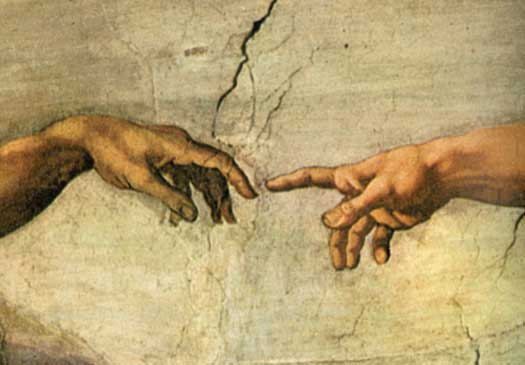Of its nature, fatherhood has a divine origin and a sacred purpose.
June 15, 2021 (LifeSiteNews) — When we speak of family, we are dealing with a rich and subtle reality that can be grasped only by reflecting on many experiences and aspects of life. We cannot give a cut-and-dried definition without in some way ignoring the ambiguity and depth of the mystery of what it means to be “kin,” to share blood and culture and love, to live as one-in-many. Gabriel Marcel writes:
Contrary to the persistent humanistic illusion, we have good reason to assert that family relationships, like human matters in general, afford no consistency, no guarantee of solidity. It is only when they are referred back to a superhuman order, which here below we cannot grasp apart from its signs and indications, that their truly sacred character becomes apparent.
In other words, they afford no consistency or solidity if they are severed from the superhuman order that endows them with their sacredness.
In its race to be as liberated as possible, the modern age has forgotten that the most important things in human life are complex and duty-bound. Fatherhood may be the most perfect example of this fact. If we were to reduce paternity to a mere biological episode with a genetic aftermath, it would have very little moral, religious, or transcendent meaning. Calling God “our Father” would be absurd if we limited ourselves to speaking in a physiological way.
To understand what fatherhood means, we must move out of the limited spheres of thought marked off by the world. Intimately bound up with human fatherhood are the irreducible realities of domus, the home or household, and munus regale, the kingly office that the man receives from the Almighty Father, to rule and govern, to protect and provide, to love and to serve.
What exactly is the reality of fatherhood? The longer we look at the external signs of a uniquely human reality, hoping to define it in terms of what it does or how it usually appears, the blurrier and darker it becomes. Such a shift for the worse happens if we try to isolate the “look” or “operation” of paternity. For a man is not simply what he does, but rather, he acts according to what he is. “Out of the abundance of the heart the mouth speaketh” (Lk 6:45). Anything can be stamped and sent along with a definition, if we are content with a bundle of items tied together by ephemeral circumstances.
Knowing the being of a thing requires more than knowing all the havings and doings that belong to it. The man who happens to be a railway conductor is not defined in his being as a ticket-puncher, nor the athlete as a field-goal kicker. Personhood transcends functionality. “The word ‘tabulation’ or ‘repertory’ is the best word for describing what the self is not” (G. Marcel, Metaphysical Journal [Chicago: Henry Regnery, 1952], 177).
Fatherhood is not, first and foremost, a physiological, psychological, legal, or social phenomenon. To stuff it into any one of these boxes would be either to reduce it to a hard fact — like the betrayal of personality seen in statistics and anatomy lessons — or to drape it in sentimentality and convention.
If we try to define fatherhood in strictly biological terms, we are really not talking of it at all, but of procreation. If we introduce considerations of a judicial or sociological order, we expose ourselves to no less a danger; it is that of allowing fatherhood to be absorbed in a conception which is relative, for, from this point of view, it could only be defined in relation to a given historical civilization whose religious and judicial institutions are transitory. (G. Marcel, “The Creative Vow as Essence of Fatherhood,” Homo Viator: Introduction to a Metaphysic of Hope [Chicago: Henry Regnery, 1951], 99).
The reality of being a father cannot be whittled down to biology or legal obligation. It is not a bodily transaction, a contract or a code, a temporary interruption of one’s life, a subjective state of seeing oneself as related by ties to which one must remain “faithful” out of a sense of obligation.
Rather, of its nature, fatherhood has a divine origin and a sacred purpose. “For this cause I bow my knees to the Father of our Lord Jesus Christ, of whom all paternity in heaven and earth is named, that he would grant you, according to the riches of his glory, to be strengthened by his Spirit with might unto the inward man” (Eph 3:14–16).
The family engendered and nurtured by husband and wife is an irrevocable community, unable to be replaced by a substitute or imitation. In spite of a diversity of customs and practices in different societies, the roles of father and mother are stable in their nature and necessary in their purpose. Even as the essence of human nature remains one, regardless of the immense variety of man’s thoughts, passions, and inventions, so too the nature of fundamental realities cannot be changed or buried by any degree of effort.
Despite their intrinsic and complementary differences, the vocations of man and woman meet in the love that results in self-denial, self-overcoming, and self-gift. “Leading the kind of life in which a Christian conquers the ‘rule of sin’ in himself by means of self-denial,” wrote Karol Wojtyła as Cardinal of Krakow,
is thus clearly a question of sanctity in the moral sense, of dominion over evil, in which, in a sense, man’s own kingliness is displayed … Every Christian who conquers sin by imitating Christ achieves the royal self-dominion that is proper to human beings; by so doing he shares in the munus regale of Christ and helps to bring about Christ’s kingdom. (Sources of Renewal [San Francisco: Harper and Row, 1980], 263)
The circle is closed: every time a man rightly exercises his paternity, in begetting and educating, chastising and rewarding, modeling endurance in labor and strength in principles; every time a woman rightly lives from within her maternity, bearing and nursing, training and instructing; every time husband and wife join efforts to rear the fruit of their love, they are sharing in the kingly office of Christ, his munus regale, which is a gift from “the Father of lights” (Jas 1:17) to the faithful Christian. It is only through the prophetic and royal priesthood of Jesus Christ that the countless sacrifices and labors of life make any sense in the end. It is only in Him that human love, so often obscured and tarnished, becomes aware of its own immortal dignity and beauty. The father and the mother share in the redemptive mission of the Lord. If they have “redeemed the time” (Eph 5:16), they will share in His salvation.
SOURCE: LIFESITE NEWS



